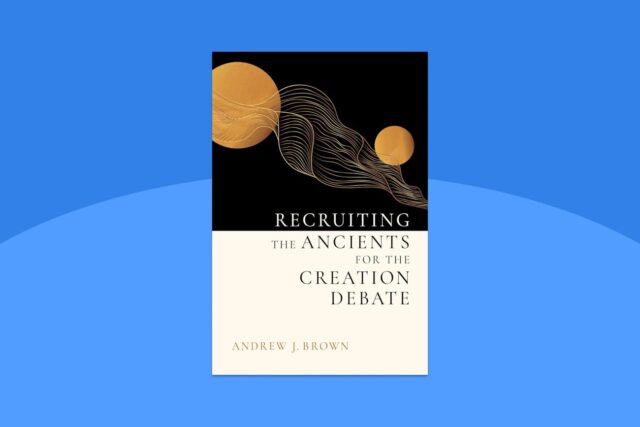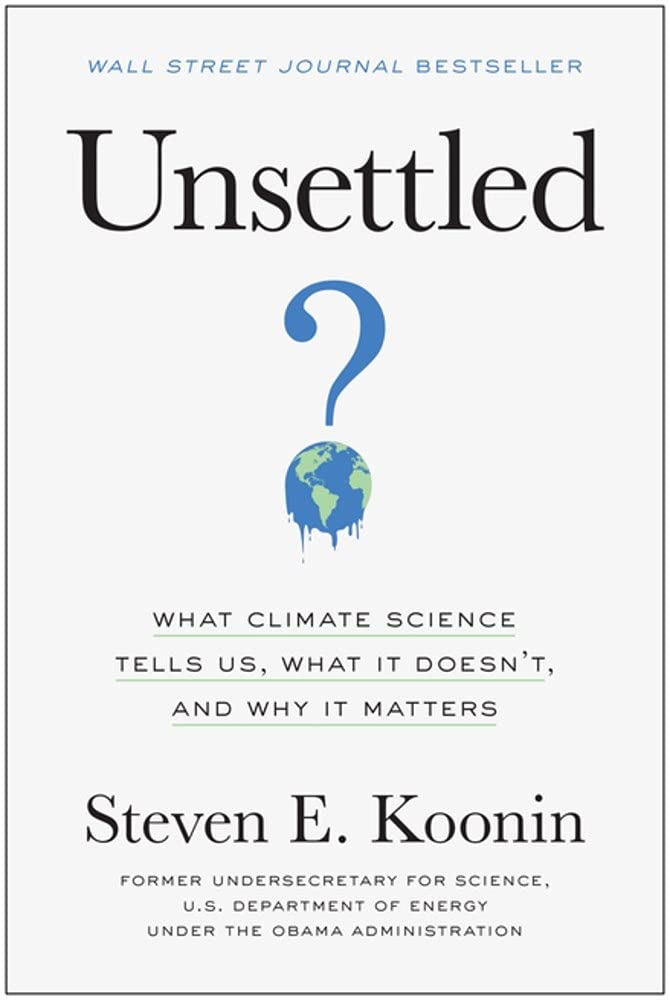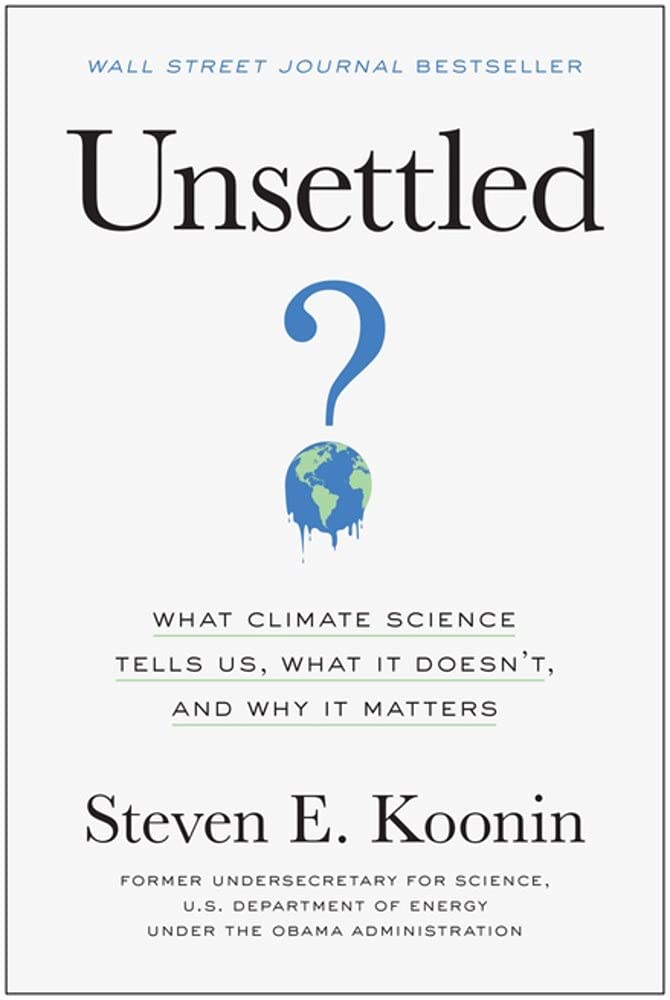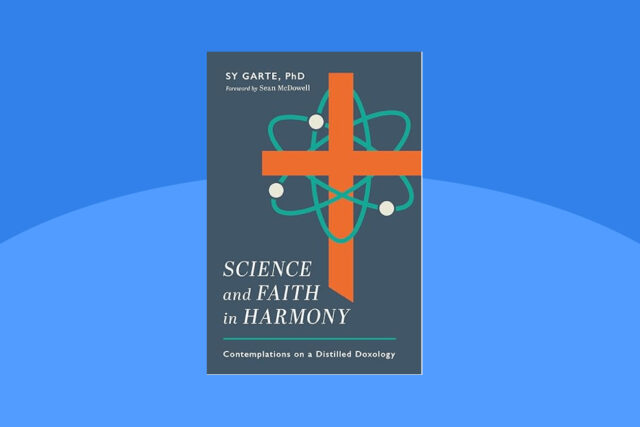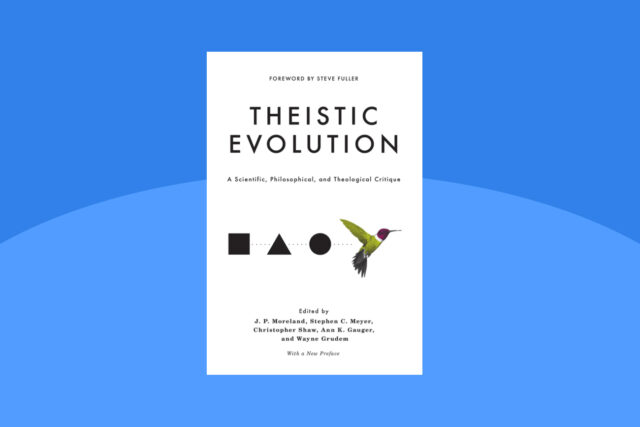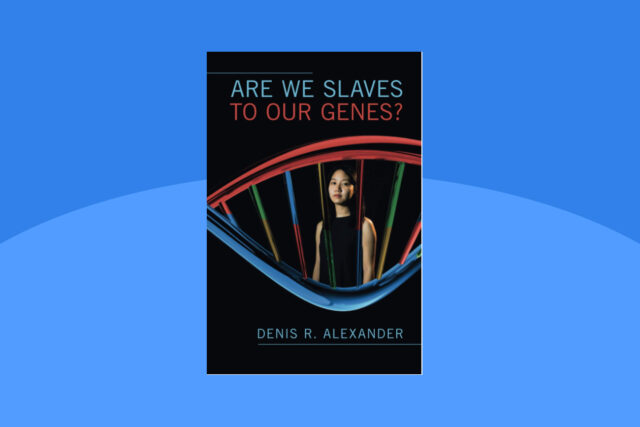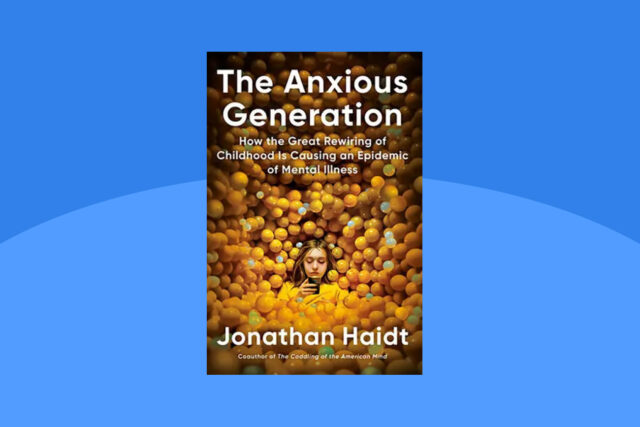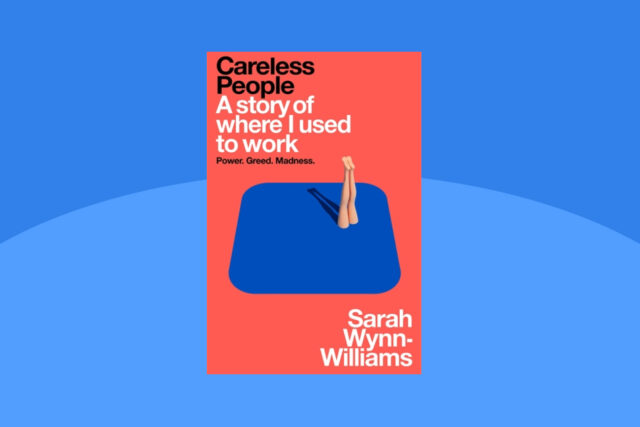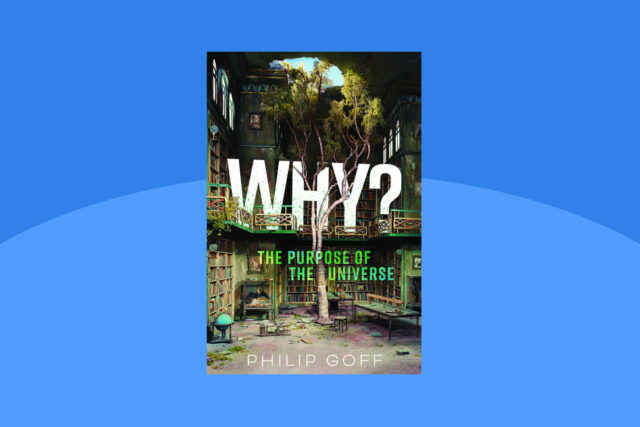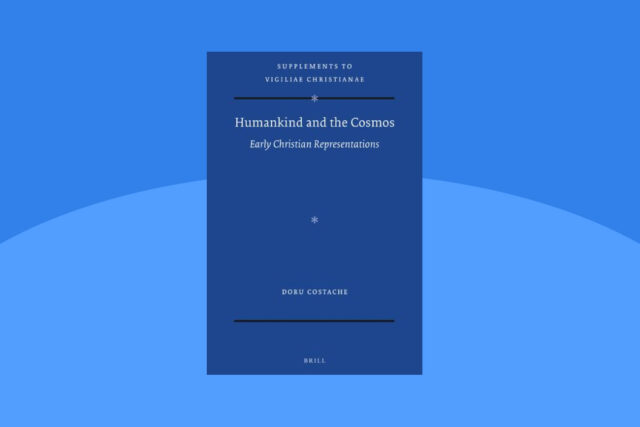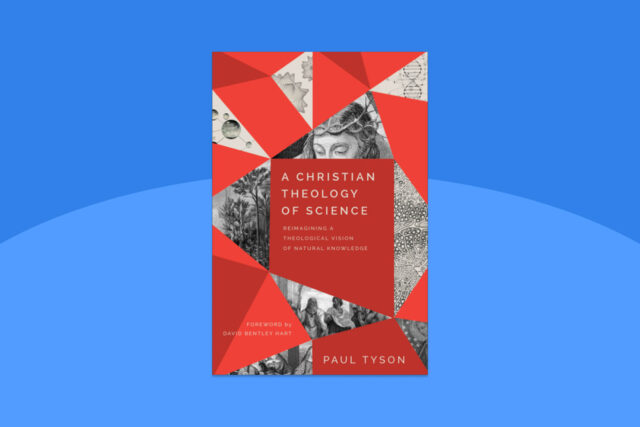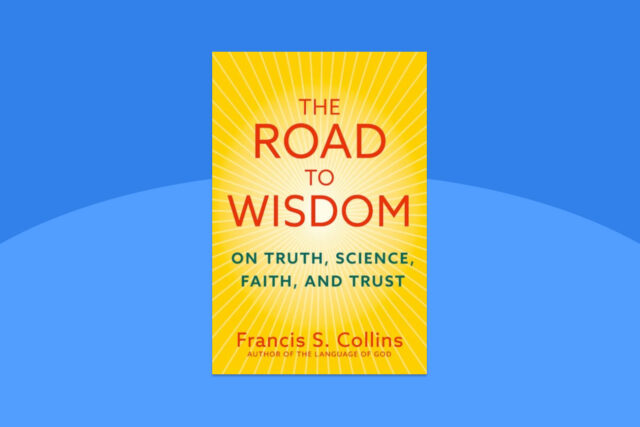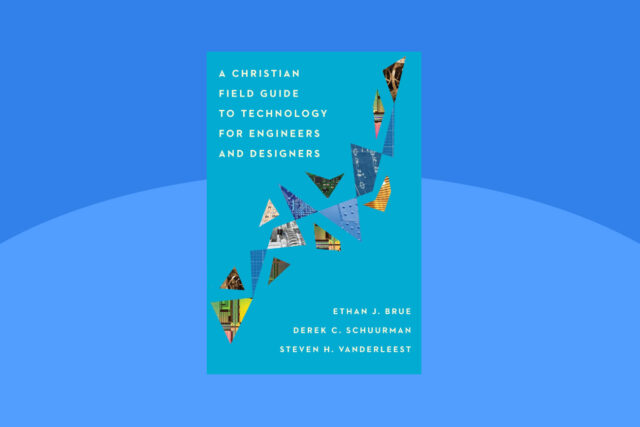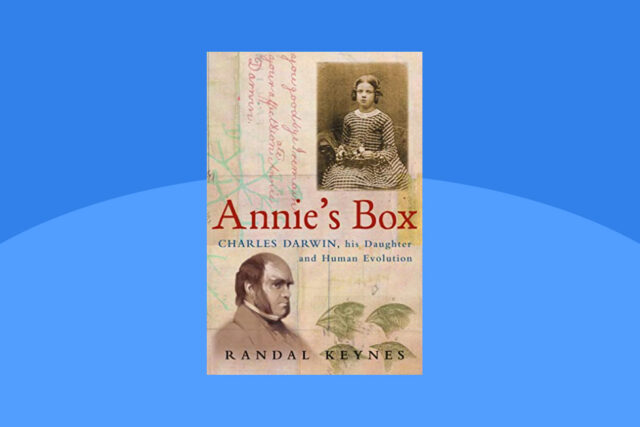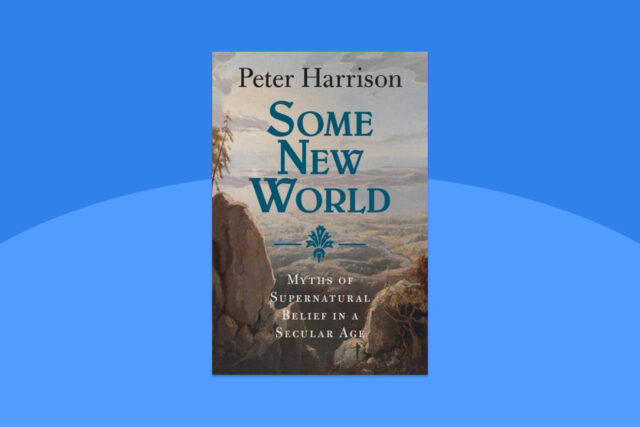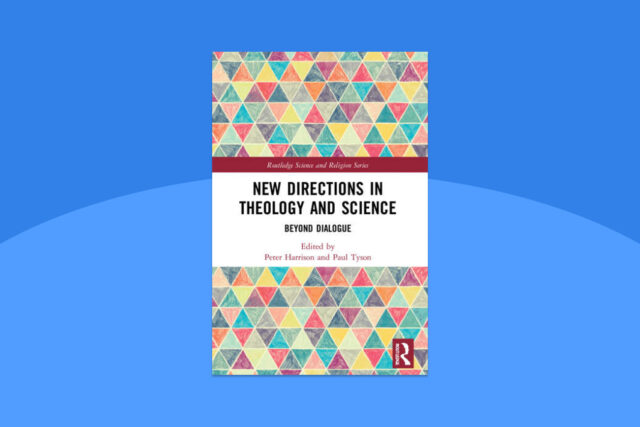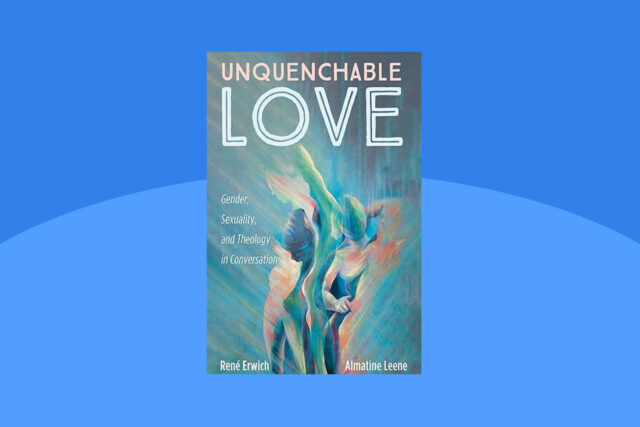Review of Unsettled: What Climate Science Tells Us, What It Doesn’t, and Why It Matters by Steven E. Koonin, BenBella Books, 2021. 258 pp + 45 pp notes & detailed index.
Reviewed by Ian Hore-Lacy, July 2021
Ian Hore-Lacy is the Senior Advisor of the World Nuclear Association and a fellow of ISCAST. Since 1995 Ian has been occupied monitoring what is going on with nuclear energy worldwide and writing it up for lay readership.
In a sense the title and strapline says it all! This is a book stressing the importance of rigorous and ethical science which is scrutinised and challenged rather than being allowed to furbish a narrative of “The Science” of climate which gets a life of its own, supposedly ‘settled’ beyond serious question. It is about the importance of scientific integrity in grappling with complexity to enable faithful stewardship of God’s wonderful creation. For me, the book resonates with Psalm 5, where the scientist bows down “in reverential awe”, despite there being “nothing reliable in what [some peers] say”.
The main part of the book—190 pages—is about the science of the changing climate with its many uncertainties, the second part—47 pages—is about the response, what we might do, which is rather US-centric.
Professor Koonin is far from the first to counter the prevailing narrative on climate change, but probably no-one has done it so comprehensively with credible authority. Having helped guide the US government’s investments in energy policy and climate science for the Obama Administration, he accepted a role with The American Physical Society (APS) in 2013 to lead a workshop scrutinising the state of climate science following the Intergovernmental Panel on Climate Change (IPCC) 5th Assessment Report (AR5). This made him realise just how unsettled that science actually is, and that it could not “make useful projections about how the climate will change over coming decades, much less what effect our actions will have on it.” He became concerned “that the public and political debates were being misinformed.”
“More than six years of study since the APS workshop have left me increasingly dismayed at the public discussions of climate and energy. Climate alarmism has come to dominate US politics”—not just a US phenomenon. Policies, especially trillion-dollar ones, need to “be informed by an accurate understanding of scientific certainties and uncertainties” rather than energised by talk of ‘climate emergency’. Hence this book. “I believe it is a responsibility, almost an act of conscience, to portray without bias just how settled—or unsettled—the science truly is.”
Considering the process as with IPCC, he notes that while the actual research contained in original reports may be subject to credible peer review, the summaries and conclusions are definitely not. They often aim to persuade rather than inform. Also, modelling is only ever very tentative, as the wild disagreement among them shows—climate science is extraordinarily complex. He gives examples of errors and misrepresentations in what gets to the public, media and politicians. He suggests that more effort should be spent “trying to understand why the climate models fail in describing the recent past and are so uncertain in their projections of the future.”
The climate change narrative in the popular media and some US government reports has been drastically over-egged. This arises from obvious vested interests at both academic and media levels and what Stephen Schneider called the ‘double ethical bind’ of balancing effective communication with honesty. Koonin rejects that notion and says “it is the height of hubris for a scientist even to consider deliberately misinforming policy discussions in service of what they believe to be ethical.” We scientists “are the only people who can bring objective science to the discussion, and that is the overriding ethical obligation.” “Activism masquerading as The Science is pernicious.”
Strong stuff, which must be fundamental to any Christian stewardship of God’s creation (aka ‘the environment’) on any issue—climate, forests, Barrier Reef, Covid-19, whatever! A few biblical quotes and reference to the Council of Trent suggest where Koonin might be coming from.
There is strong alignment between Koonin’s suggestion for a Red Team review of climate reports and that of Peter Ridd regarding Great Barrier Reef science, whereby a group of scientists rigorously questions papers and reports in their editorial stage to identify weak spots and groupthink. A bit like the role of opposition in parliament. Maybe The Science has become so widely prostituted that we need this across the board, countering popular narratives. Koonin mentions John Kerry’s disparagement of the idea, as Biden’s climate envoy. He urges scrutiny of science—for most of us that means IPCC assessment reports rather than their public summaries which have an agenda. Certainly I, as a layman, find the contrast disconcerting. Of course, the imminent AR6 may change the picture a bit.
Implicit in the book is Matt Ridley’s message that the politicisation of science leads to a loss of confidence in it, so that distrust breeds superstition. This is evident in public attitudes to genetically modified food, nuclear power and vaccines. Koonin agrees that The Science of Covid needs the same rigorous scrutiny as climate. The pernicious effect of social media on contentious matters is another issue.
The main part of the book is addressed to the layman, with a dearth of technical terms—even wavelength is rendered as ‘colour’ of radiation! This is occasionally irritating, but at least he uses SI units. He makes the point that “the process of science is less about collecting pieces of knowledge than it is about reducing the uncertainties in what we know.”
He accepts that the IPCC assessment reports (to AR5 in 2013) are largely sound, and bases much of his detailed discussion on them, though “some elementary failures that mislead or misinform readers” are critiqued. They can be completely factual but not factually complete, hence misleading. He shows how derivative reports including those from reputable US scientific bodies can “tend towards unsupported hyperbole when communicating on the subject of climate.” He makes some mention of the 2019 IPCC special report on oceans & cryosphere but does not mention the 2018 one on 1.5°C projection.
World temperature increase, the anthropogenic contribution, the albedo effect, all lead to a chapter on models whose projections increasingly diverge. The effect of feedbacks on rising CO2 concentration remain unclear. He concludes that “the uncertainties in modelling of both climate change and the consequences of future greenhouse gas emissions make it impossible today to provide reliable, quantitative statements about relative risks and consequences and benefits of rising greenhouse gases to the Earth system.” Climate emergency not.
Chapters on heat, cyclones, precipitation and sea levels document very small changes, mostly not anthropogenic, despite unrelenting media hype. Catastrophism based in those areas misrepresents the evidence. In line with that, Lomborg says that cold deaths vastly outweigh heat deaths worldwide, citing a study in The Lancet showing “that climate change in the past decades has avoided more cold deaths across every region than it has caused additional heat deaths.” Koonin acknowledges 1.3°C temperature rise since 1900 and expects about the same this century, with net human contribution today being 1.1 to 3.3 W/m2—a big range but in line with the lowest IPCC AR5 scenario.
Koonin concludes the science part of the book suggesting six red flags which should trigger active scepticism about climate change pronouncements or reports. These are: Anyone referring to a scientist with the pejoratives ‘denier’ or ‘alarmist’ is engaging in politics or propaganda. Any appeal to the alleged ‘97 percent consensus’ among scientists needs to specify what is actually agreed. Confusing weather and climate. Omitting numbers. Quoting alarming quantities without context. Confusing climate observations with climate projections.
So, moving on from science to his consequent opinions, what can and should be done? And what is likely to be done? He suggests that the drivers of population and development are likely to grow energy demand by about 50% to 2050 and that even with Paris targets achieved as first step there is no prospect of sufficient emissions reductions across the world to change the climate significantly. Values and utility interact with science in every country and society. So, we will need to adapt, though warming of less than 2°C is unlikely to be detrimental on the whole. Cost and reliability will remain the key considerations for energy systems. No very radical change in human behaviour is likely or required. He’s not saying ‘do nothing’, but rather ‘don’t panic’.
Though evidently in favour of it, he barely mentions nuclear power in the book. Perhaps he reckons the book has stirred enough already! He does say that green policies favouring renewables but not nuclear “belies claims that we’re facing an existential threat.” Insofar as nuclear power is on any agendas in Australia, the focus is on small reactors which can entirely or largely be made in factories and easily fitted into our grid in place of coal-fired units.
For the sake of those more concerned than him, he outlines possible Plan B of geoengineering. This may be by increasing the stratospheric albedo with sulfur or by removing CO2 from the atmosphere either physically or by planting more trees. Apart from the trees, it is some way off economic or political practicality and the side effects are very uncertain, but R&D would be prudent. Koonin’s bets are on adaptation, with abundant human precedent.
In his concluding words he reminds us of how much is actually understood about the climate despite its complexity, regrets the occasional misrepresentations by scientists, and emphasises that “simplistic descriptions of ‘the problem’ or putative ‘solutions’ will not result in wise choices.” Questions need to be pursued. “We need to move from The Science back to science.” “The truth is that real science is never entirely settled—that’s how we make progress; it’s what science is all about. Let’s further our understanding rather than repeating orthodoxy.” Matt Ridley echoes this more strongly: “Conformity is the enemy of scientific progress, which depends on disagreement and challenge” contra dogmatic gate-keeping.
Scientific American published two critical opinion pieces on this book, one saying that Koonin “cherry-picks and misrepresents outdated material to downplay the seriousness of the climate crisis,” the other saying that he “falsely suggests that we don’t understand the risks enough to take action.” Another from Yale said that ‘settled science’ is a straw man. The journal refused to publish his rebuttal to the first opinion piece. Koonin then blogged that “Scientific American has published a criticism of me and my recent book, Unsettled. Most of that article’s 1,000 words are scurrilous ad hominem and guilt-by-association aspersions from the twelve co-authors. Only three scientific criticisms are buried within their spluttering.” He then responds convincingly to those three, suggesting that the critics don’t seem to have actually read his book. The tone and substance of the critiques seem to me to justify Koonin’s book, and doubtless are only the first of what will be many. Hopefully the tone will moderate so that we see science at work as methodology rather than ideology.
https://www.scientificamerican.com/article/a-new-book-manages-to-get-climate-science-badly-wrong/ & https://www.scientificamerican.com/article/that-obama-scientist-climate-skeptic-youve-been-hearing-about/
